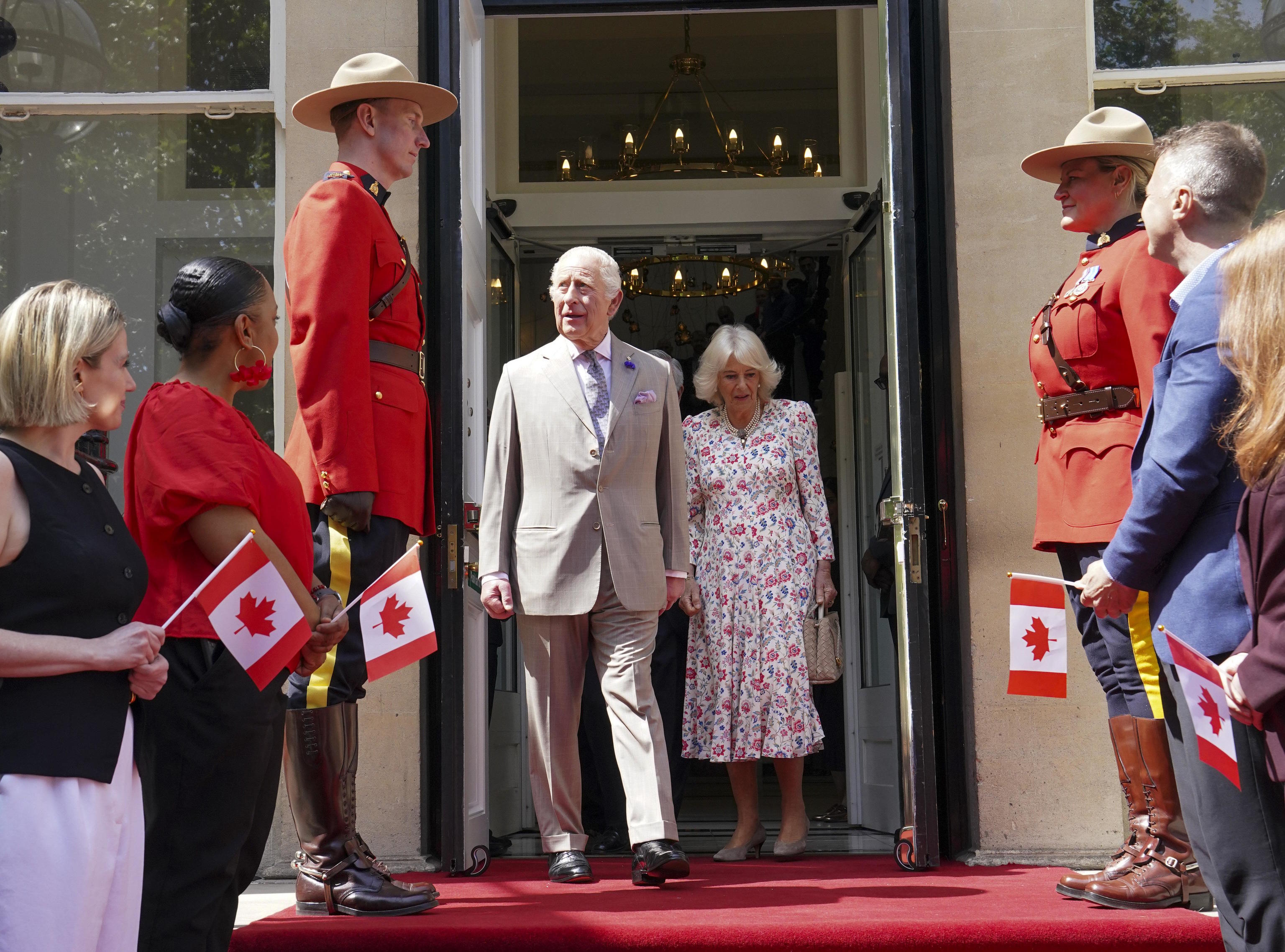King Carlos III's first trip to Canada was supposed to take place a year ago. This was the plan from Buckingham Palace before the detection of cancer disrupted the monarch's schedule for months, causing many plans to fall through. However, the son of Queen Elizabeth II will now be able to make up for it with the visit that begins today to the North American nation of which he is also king. This visit has suddenly become one of King Carlos III's most important missions since his ascension to the Throne, due to recent geopolitical turbulence.
He will only spend two days with his wife, Queen Camilla, in Canada. This will be enough time for a complex diplomatic exercise, where the monarch must emphasize the country's sovereignty and its established constitutional framework, all while delicately avoiding any perception of a direct clash with Donald Trump. The Windsor head departs with the advantage that the Republican has a weakness for the British royal family and is likely willing to overlook details that he would consider as personal attacks and affronts from other leaders.
This visit to Ottawa was designed in record time, responding to the explicit request of the Head of State of the United Kingdom and 14 other nations, including Canada, by their newly elected Prime Minister Mark Carney, to deliver the Throne Speech in the federal Parliament, formally opening the new session. Carney, who took office as a member of parliament last Thursday swearing "loyalty to the king," once again warned that the country is "at a critical moment."
Critical Moment for Canadians
This is also how a majority of Canadian citizens perceive it, as reflected in the elections. In such a context of concern and exception, it seemed necessary and urgent for King Carlos III to open the legislature with the Throne Speech, an extraordinary gesture that is usually carried out by the Governor General on behalf of the king without major issues. Everything is necessary to emphasize national sovereignty, to make it clear to Washington that Canada is not for sale and never will be. The monarch's presence in the Canadian Senate will be so prominent that only on two previous occasions has a king - in this case, a queen, his mother, Queen Elizabeth II - delivered the Throne Speech, similar to what she does every year in Westminster at the beginning of each parliamentary session: the first in 1957 - four years after the queen was crowned - and the second in 1977, when Queen Elizabeth II undertook another extensive tour of Canada on the occasion of her Silver Jubilee.
Trump has turned everything upside down on the international stage. Specifically, the relationship between the US and Ottawa has deteriorated in a way that seemed impossible. Paradoxically, the Trumpian onslaught is also contributing to improving the image of the Crown. Suddenly, Canadians have realized that outside the protective mantle of the Monarchy, it is colder. This is evidenced by considerable public support for the institution, as shown in recent surveys. The latest polls indicate that 40% of Canadians would prefer a Republic, compared to 31% in favor of the status quo. What is most striking is that this gap, which was 23 points last year, has now narrowed to just nine. Given that a significant portion of the population is undecided, the Canadian republican momentum has substantially dissipated, returning to a very similar trend to the final years of Queen Elizabeth II's reign.
At Buckingham Palace, there is a sense of relief because the same opinion polls indicate that the vast majority of Canadians believe that the Monarchy will still exist in two decades, and the popularity of some members of the royal family, especially the Prince of Wales, William and Catherine, has soared to 54% and 58%, respectively, showing how the Crown continues to have a significant emotional appeal among the North American population.
The Throne Speech will be the highlight of a royal visit that will include many other symbolic events. In addition to meetings with the Governor General, Mary Simon, and Prime Minister Carney, as well as meetings with the Lieutenant Governors and Commissioners of the 10 provinces and three territories that make up the Federation, there will be a moment for Queen Camilla to be sworn in as a new member of the King's Privy Council, composed of government members, former prime ministers, and influential national figures.
Since Trump set his sights on the country in January, King Carlos III has made affirmations as the King of Canada with finesse befitting his role but unequivocal. In recent weeks, he has met with Trudeau and Carney in London, as well as other leaders of the nation, and has taken advantage of occasions such as his inspection of the aircraft carrier HMS Prince of Wales to showcase his Canadian military uniform and decorations. His imminent challenge is to show even more energy in defense of the interests of his North American Kingdom without upsetting Trump, who is counting down the weeks to his State Visit to London. The Monarchy must navigate diplomatic waters delicately.
Queen Elizabeth II's Throne Speech in the Parliament of Ottawa in 1977 had a significant depth. It did not overlook the thorny issue of Quebec separatism, stating that the country must choose between "increasing confrontation" and "enhanced national unity."
